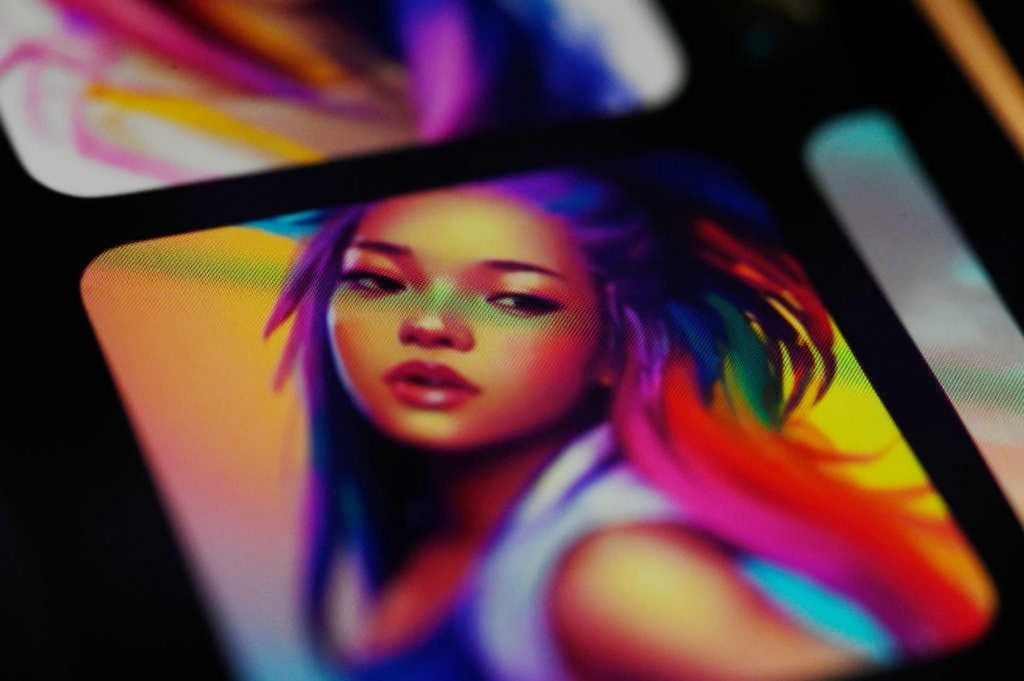Law & Politics
A Class Action Lawsuit Against a Popular A.I. Art Generator Alleges the App Collects Its Users’ Biometric Information Without Their Permission
The complaint says Lensa A.I. illegally extracts users’ facial data to train its models.

The complaint says Lensa A.I. illegally extracts users’ facial data to train its models.

Taylor Dafoe

A group of Illinois residents has filed a class action lawsuit against the company behind Lensa A.I., saying that the viral app broke the state’s law against collecting biometric information.
The suit, filed yesterday in Northern California district court (and reviewed by Artnet News), alleges that Prisma Labs illegally collected the plaintiffs’ facial geometry data through Lensa, which uses A.I. to create custom cartoon avatars. In doing so, the company violated Illinois’s 2008 Biometric Information and Privacy Act (BIPA), the document argues.
The case comes amid increased public scrutiny around A.I. programs and the digital images on which they’re trained. Lensa, in particular, has faced criticism for allegedly scraping artists’ work online. Some users have also decried the app’s supposed penchant for lightening skin, thinning bodies, and churning out sexualized nudes without users’ consent.
“The plaintiffs in this lawsuit, and millions of others like them, unwittingly provided their facial biometrics to Prisma Labs when they downloaded the Lensa app,” said attorney Tom Hanson in a statement shared by his firm Loevy & Loevy, which represents the group behind the complaint.
“A person’s facial geometry is like their fingerprint,” Hanson went on. “It is an immutable, unique identifier that deserves the highest degree of protection the law can afford.”
Launched back in 2018, Lensa became an online sensation late last year as celebrities, athletes, and seemingly just about everyone else turned their social media profile pictures into one of the app’s signature “Magic Avatars.”
To create one of these avatars, the program asks users to upload a series of selfies and requires access to the photos on that person’s personal device. It’s at that point, the complaint argues, that the app extracts users’ facial data without their permission.
Since Lensa’s boom in popularity and the various waves of criticism that followed it, Prisma has updated the program’s privacy policy numerous times, detailing, to increasingly greater degrees, what data is collected and how that data is stored. Missing from the policy, though, is any mention of facial geometry.
“Lensa continues to be one of the most downloaded apps in the country, which is why this lawsuit—and Prisma Labs’ compliance with BIPA—is so urgently needed,” said Mike Kanovitz, a Loevy & Loevy Attorney. “Prisma Labs has been unlawfully collecting users’ biometric data without their consent. This is in violation of Illinois law, and deeply concerning for anyone who believes in data privacy.”
A Chicago-based firm, Loevy & Loevy won the first BIPA case to go to trial last year when a federal journey ordered the BNSF Railway Company to pay $228 million in damages for collecting fingerprints from more than 45,000 truck drivers.
Representatives from Prisma Labs did not immediately respond to a request for comment on the complaint and the claims made therein.
More Trending Stories:
A Revolutionary Tool Gives Artists a New Weapon in the Fight Against AI Art Theft
Brooklyn-Based Art Collective MSCHF Is at It Again, This Time With Cartoonishly Oversized Red Boots